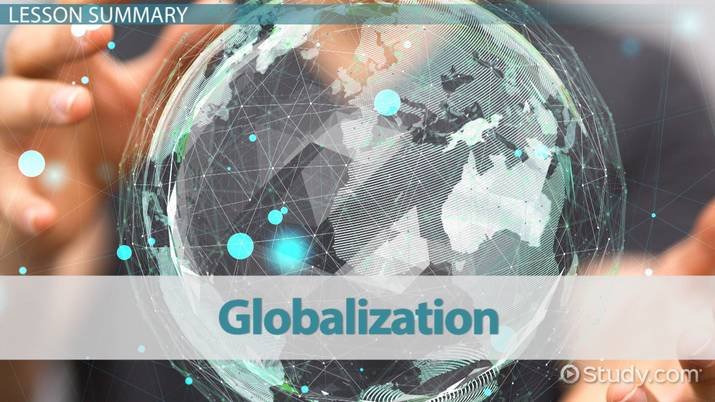The United States of America, often simply referred to as the USA, has long held a significant position in the world. From its founding in 1776 to its emergence as a superpower in the 20th century, the USA has shaped global culture, economy, and politics in ways that are both profound and far-reaching. This essay explores the multifaceted influence of the USA across these domains, highlighting key developments, trends, and the interplay between the country and the rest of the world.
Historical Context
To understand the impact of the USA, it is essential to consider its historical context. The nation’s founding was rooted in Enlightenment ideals of liberty, equality, and democracy. The Declaration of Independence and the Constitution laid the groundwork for a political system that would inspire numerous movements for democracy around the globe. Over the centuries, the USA expanded westward, engaged in a civil war over slavery, and ultimately emerged as a leader in both World Wars.
Cultural Influence
Media and Entertainment
The USA is often regarded as the epicenter of global media and entertainment. Hollywood, the heart of the American film industry, produces a vast array of movies that reach international audiences, shaping cultural narratives and societal values. American television shows, music, and literature have also found their way into homes around the world, influencing fashion, language, and lifestyle choices.
The rise of streaming platforms like Netflix and Hulu has further amplified this cultural export, allowing viewers from diverse backgrounds to access American content easily. This cultural dissemination often leads to a blend of local and global influences, creating hybrid cultural forms that reflect the complexity of global interactions.
Technology and Innovation
Silicon Valley has become synonymous with technological innovation. Companies like Apple, Google, and Microsoft have transformed the way people interact, communicate, and access information. This technological prowess not only contributes to the American economy but also shapes global standards and practices. The USA’s role in developing the internet and digital technologies has led to a hyper-connected world, enabling the rapid spread of ideas and trends across borders.
Fashion and Lifestyle
American fashion brands like Nike, Levi’s, and Ralph Lauren are global symbols of style and consumer culture. The American lifestyle, characterized by consumerism and individualism, has influenced social norms worldwide. Fast food chains such as McDonald’s and Starbucks have popularized American culinary practices, further embedding the USA’s cultural influence in everyday life.
Global Trade and Investment
The USA has one of the largest economies in the world, and its economic policies have far-reaching implications for global trade. As a member of key international organizations like the World Trade Organization (WTO), the USA plays a pivotal role in shaping trade agreements and policies that govern international commerce. American companies often set the standard for business practices, influencing how businesses operate globally.
Foreign direct investment (FDI) from the USA has also been a significant factor in the economic development of many countries. American companies invest billions in various sectors, creating jobs and driving innovation in host countries. However, this investment is often accompanied by concerns over labor practices, environmental sustainability, and economic dependency.
The Dollar’s Dominance
The US dollar serves as the world’s primary reserve currency, a status that affords the USA unique advantages. This dominance allows the USA to borrow at lower costs and influences global monetary policy. Countries around the world hold substantial reserves of dollars, making the USA’s economic health critical to global stability.
Economic Inequality
While the USA has historically been a land of opportunity, it also faces significant challenges related to economic inequality. The wealth gap between the richest and poorest citizens has widened, raising questions about social mobility and the equitable distribution of resources. This inequality has implications not only for domestic policy but also for international relations, as economic disparities can lead to instability and unrest.
Political Influence
Democracy and Human Rights
The USA has positioned itself as a champion of democracy and human rights. Through foreign policy initiatives and support for international organizations, the USA promotes democratic values and seeks to foster political stability in various regions. However, this stance is often complicated by geopolitical interests, leading to accusations of hypocrisy when American actions do not align with its stated values.
Military Power
The USA maintains one of the most powerful militaries in the world, a status that has significant implications for global security. American military interventions, whether in Iraq, Afghanistan, or elsewhere, have sparked debates about the ethics and effectiveness of using force to achieve political goals. The presence of American troops in various countries is often a source of tension, yet it also serves to deter aggression from hostile states.
Global Governance
The USA plays a leading role in global governance, participating in international organizations such as the United Nations, NATO, and the G7. American leadership is often pivotal in addressing global challenges such as climate change, pandemics, and terrorism. However, the USA’s withdrawal from international agreements, such as the Paris Climate Accord, raises questions about its commitment to collaborative global solutions.
Challenges and Criticisms
Domestic Issues
Despite its global influence, the USA grapples with significant domestic challenges. Political polarization, social unrest, and debates over immigration and healthcare are at the forefront of national discourse. These issues can affect how the USA is perceived internationally and its ability to effectively engage with other countries.
Global Perception
The USA’s influence is not universally welcomed. Anti-American sentiment can arise from perceptions of cultural imperialism, foreign interventions, and economic dominance. Countries around the world may resist American influence, seeking to assert their own identities and autonomy in an increasingly interconnected world.
Environmental Concerns
The USA’s environmental policies and practices are often criticized on the global stage. As one of the largest carbon emitters, the USA faces pressure to take more aggressive action to combat climate change. The impact of American consumption patterns on global resources and ecosystems cannot be overstated, necessitating a reevaluation of priorities in both domestic and foreign policy.
The Future of USA’s Influence

Evolving Global Landscape
As the global landscape evolves, so too will the USA’s role within it. The rise of other powers, particularly China and the European Union, presents both challenges and opportunities for the USA. The shifting balance of power requires a reevaluation of strategies in diplomacy, trade, and military engagement.
Technological Advancements
Emerging technologies such as artificial intelligence, renewable energy, and biotechnology are likely to shape the future of global interactions. The USA’s ability to lead in these fields will significantly impact its economic competitiveness and geopolitical standing.
Global Cooperation
In an era characterized by complex global challenges, cooperation will be essential. The USA’s willingness to engage in multilateral efforts to address issues such as climate change, health crises, and security threats will determine its long-term influence. Building strong partnerships with other nations will be critical in fostering a collaborative approach to global governance.
Conclusion
The impact of the USA on global culture, economy, and politics is profound and multifaceted. While the nation continues to wield significant influence, it faces challenges that require careful navigation. As the world evolves, so too must the USA’s approach to its role on the global stage. The interplay between domestic realities and international responsibilities will shape the future trajectory of American influence and its relationship with the world. Ultimately, the USA’s commitment to democratic values, global cooperation, and sustainable practices will determine its legacy in the years to come.


2 thoughts on “Exploring the Impact of USA on Global Culture, Economy, and Politics”